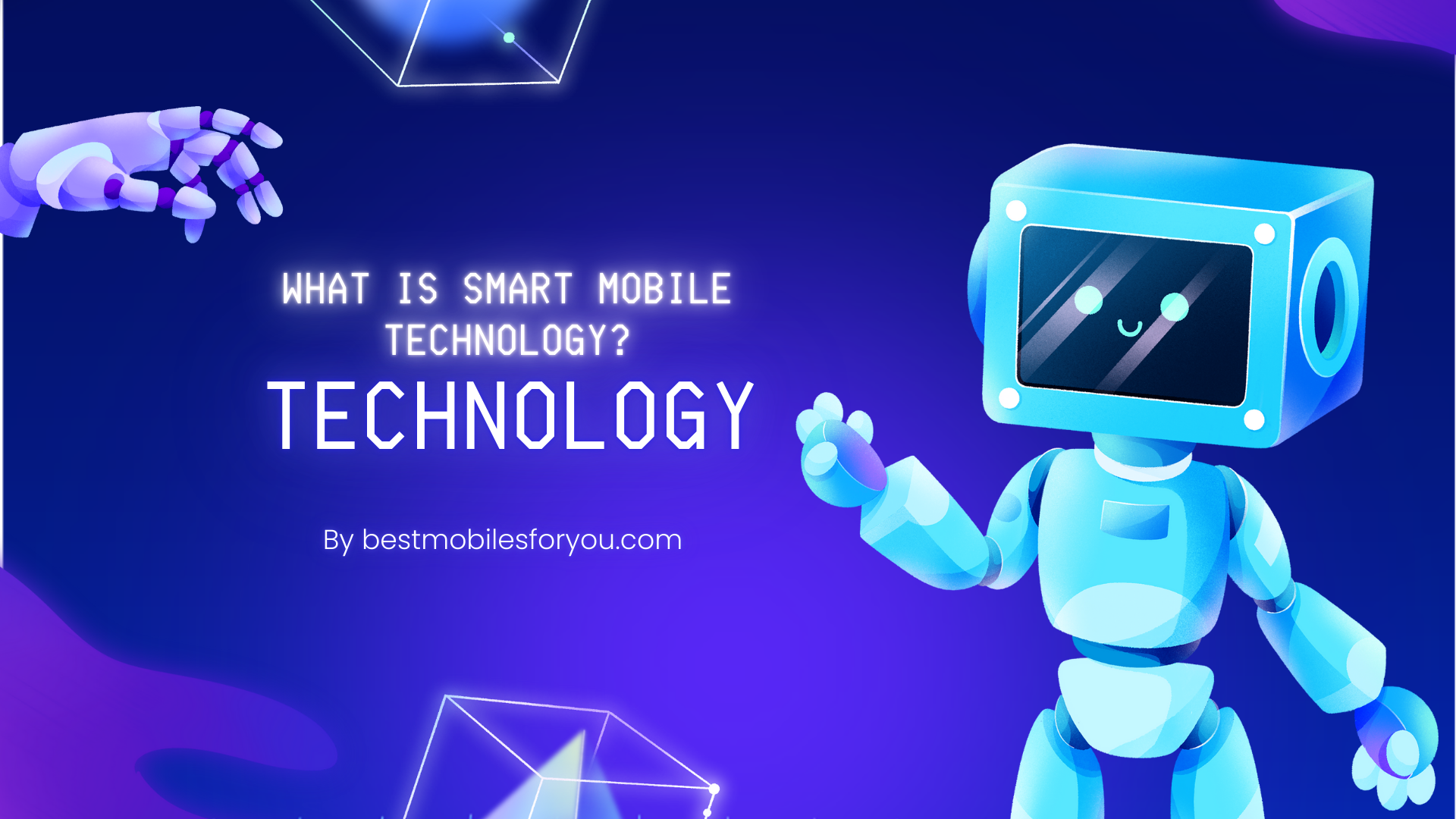In today’s fast-paced digital world, the buzz around mobile technology is louder than ever. With the launch of new smartphones, advancements in connectivity, and the rise of innovative applications, it seems like we’re constantly at the edge of a technological breakthrough. Just recently, major industry events like CES 2024 showcased a plethora of new devices and innovations that promise to redefine how we interact with technology. From AI-powered features in smartphones to foldable screens, it’s a thrilling time to be a tech enthusiast.
What is Meant by Mobile Technology?
Mobile technology encompasses a wide range of devices and services that enable wireless communication and data exchange. At its core, it refers to the use of portable devices—like smartphones, tablets, and wearables—that allow users to connect to the internet, communicate with others, and access a multitude of services on the go.
Mobile technology includes several key components:
- Mobile Devices: This category primarily includes smartphones, tablets, and wearables like smartwatches. These devices are equipped with operating systems that allow users to install applications and perform various tasks.
- Mobile Networks: Mobile technology relies on cellular networks to provide connectivity. These networks have evolved from 1G to 6G, with each generation offering faster speeds and improved performance.
- Mobile Applications: These are software applications designed specifically for mobile devices. From social media apps to productivity tools, mobile apps have transformed how we interact with technology and each other.
- Mobile Payment Systems: With the rise of digital wallets and mobile payment solutions, users can now make transactions directly from their devices, making commerce more convenient than ever.
Mobile technology has become an integral part of our lives, enabling instant communication, access to information, and the ability to perform various tasks without being tethered to a desk.
Who Introduced Mobile Technology?

The concept of mobile technology can be traced back to the 1970s when the first mobile phones were developed. Martin Cooper, a Motorola engineer, is credited with making the first-ever mobile phone call in 1973. He used a large, cumbersome device called the Motorola DynaTAC, which weighed around 2.5 pounds and was about 10 inches long. This marked the beginning of a new era in telecommunications.
Over the decades, mobile technology has undergone a significant transformation. In the 1980s, the first commercial mobile phones were launched, primarily for business professionals. However, it wasn’t until the late 1990s and early 2000s that mobile technology began to gain traction among the general public with the introduction of more compact devices and better network coverage.
The introduction of the smartphone in the late 2000s, particularly with the launch of Apple’s iPhone in 2007, revolutionized mobile technology. The iPhone combined a phone, iPod, and internet communicator into one device, setting the standard for smartphones that followed. Today, brands like Samsung, Google, and OnePlus have joined the fray, continually pushing the boundaries of what mobile technology can achieve.
Why is Mobile Technology So Important?
Mobile technology plays a vital role in today’s society for several reasons:
Convenience: Mobile technology has made our lives more convenient. From navigation to online shopping, many tasks can now be completed with just a few taps on a screen, saving time and effort.
Accessibility: Mobile devices have made it easier for people to access information, services, and resources from virtually anywhere. Whether it’s checking emails, reading the news, or ordering food, mobile technology enables users to stay connected and informed.
Communication: With instant messaging apps, video calls, and social media platforms, mobile technology has transformed how we communicate. It bridges geographical gaps, allowing people to connect with family and friends worldwide. Although this can also lead to challenges around privacy and mental health.
Business Transformation: For businesses, mobile technology has opened up new avenues for reaching customers. Companies can engage with consumers through mobile apps, targeted ads, and social media marketing, enhancing customer experiences and driving sales.
Economic Growth: In developing countries, mobile technology has the potential to spur economic growth by providing access to services such as banking, education, and healthcare. It allows individuals to participate in the digital economy, empowering them to improve their quality of life.
What are the Commonly Used Mobile Technologies?
Several mobile technologies are commonly used today, including:
Mobile Browsers: Mobile browsers allow users to access the internet on their devices, enabling them to search for information, shop, and engage with content on the go.
Smartphones: The most ubiquitous mobile devices, smartphones combine communication, computing, and entertainment into one device. Popular brands include Apple, Samsung, and Google.
Tablets: Larger than smartphones, tablets offer a more expansive screen for tasks like reading, gaming, and watching videos. They are often used in education and professional settings.
Wearables: Devices like smartwatches and fitness trackers monitor health metrics, track workouts, and keep users connected without needing to pull out their phones.
Mobile Apps: Applications designed for mobile devices offer various services, from social networking to gaming and productivity. They play a critical role in the mobile ecosystem.
Mobile Payments: Digital wallets and mobile payment solutions like Apple Pay, Google Pay, and various UPI apps have revolutionized how we conduct transactions, making payments quick and convenient.
3G, 4G, and 5G Networks: These generations of mobile communication technologies have drastically improved data transfer speeds and connectivity.
Wi-Fi: Essential for connecting devices to the internet, especially in urban areas where cellular networks might be congested.
Bluetooth: Allows devices to communicate wirelessly over short distances, commonly used for headphones and wearables.
Mobile Operating Systems: Platforms like Android and iOS that power mobile devices and facilitate the use of applications.
What is the Latest Mobile Technology?
As of 2024, some exciting advancements in mobile technology include:
- Generative AI: This technology enhances user experiences by personalizing interactions, automating tasks, and providing real-time data processingGSMA Intelligence.
- Foldable Devices: Smartphones with flexible screens are gaining traction, allowing users to have larger displays in a more compact formTechRadar.
- 5G-Advanced: This next phase of 5G is set to improve connectivity further, enhancing capabilities like augmented reality (AR) and virtual reality (VR)GSMA IntelligenceTechRadar.
What is Smart Mobile Technology?
Smart mobile technology refers to devices that leverage advanced computing power, connectivity, and sensors to provide enhanced functionality. Think of smartphones that can recognize your voice, adapt to your usage patterns, and even suggest actions based on your habits. Features like facial recognition, AI-driven photography, and immersive AR experiences are all part of this landscape. Essentially, smart mobile technology not only connects users but also learns and evolves with them, creating a more intuitive user experience.
What is 6G Mobile Technology?
While 5G is still being rolled out globally, researchers and engineers are already looking ahead to 6G. Expected to be commercialized around 2030, 6G will offer ultra-high-speed data transfer, extremely low latency, and enhanced connectivity for a massive number of devices. It will likely enable advancements in AI, IoT (Internet of Things), and will further blur the lines between the physical and digital worlds
What is the Future of Mobile Technology?
The future of mobile technology looks bright and full of potential. With advancements in AI and machine learning, we can expect smarter devices that offer personalized experiences. For instance, mobile devices may soon have the ability to anticipate user needs, manage tasks, and integrate seamlessly with other smart devices in homes and workplaces
What’s Next in Mobile Technology?
Looking ahead, we can anticipate:
- Enhanced Reality Experiences: With the rise of AR and VR technologies, future smartphones may include advanced sensors and displays to create immersive experiencesTechRadar.
- Sustainability Efforts: Companies are increasingly focusing on sustainable practices, from using recyclable materials in devices to developing energy-efficient technologiesGSMA IntelligenceTechRadar.
- Health Monitoring: As wearables become more integrated with mobile technology, real-time health monitoring could become a standard feature on smartphonesGSMA Intelligence.
What is the Future of Phones?
The phone of the future will likely be more than just a communication tool. With the integration of AI, IoT, and advanced health features, future smartphones may serve as personal assistants, health monitors, and even home control hubs. Moreover, as privacy and security concerns continue to grow, we can expect significant innovations in these areas to protect users
What are the Top 10 Technologies?
While the landscape of technology is vast and continually evolving, some of the top technologies shaping our world today include:
- AI and Machine Learning
- Blockchain
- Internet of Things (IoT)
- Augmented Reality (AR)
- Virtual Reality (VR)
- 5G Connectivity
- Quantum Computing
- Edge Computing
- Biotechnology
- Sustainable TechnologiesGSMA IntelligenceTechRadar.
Is Mobile Development the Future?
Absolutely! Mobile development is an ever-growing field, with demand continuing to soar as businesses recognize the importance of mobile presence. Whether it’s for creating apps that improve productivity, enhance entertainment, or facilitate commerce, skilled mobile developers will remain in high demand. As new technologies emerge, the scope for innovation in mobile development will expand, making it a vital part of the tech industry
Final Thoughts
In conclusion, smart mobile technology is not just about having a device that makes calls or sends texts. It’s about creating a seamless ecosystem that enhances our daily lives, keeps us connected, and empowers us to do more, whether in our personal or professional lives. As we look to the future, we can expect even more incredible innovations that will continue to reshape our relationship with technology. Whether it’s through the lens of a smartphone or an emerging wearable, mobile technology is here to stay, and its evolution promises to be nothing short of fascinating.
In a world where technology is becoming increasingly integral to our lives, staying informed and adaptable will be crucial. So, embrace the change and get ready for an exciting journey into the future of mobile technology!


2 thoughts on “What is smart mobile technology?”